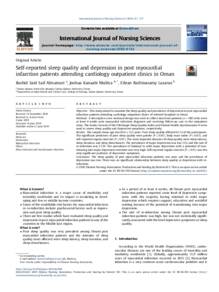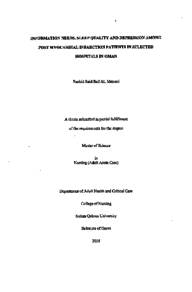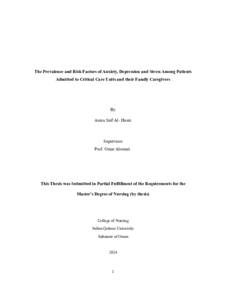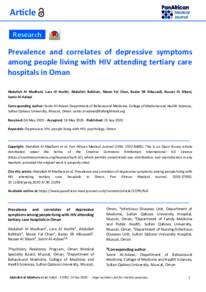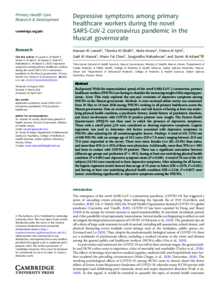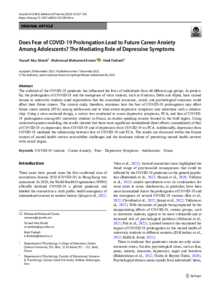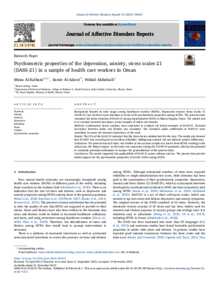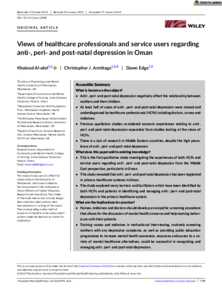Document
Self-reported sleep quality and depression in post myocardial infarction patients attending cardiology outpatient clinics in Oman.
Identifier
DOI: 10.1016/j.ijnss.2019.06.008
Source
International Journal of Nursing Sciences. v. 6, 4, p. 371-377
Contributors
Muliira, Joshua Kanaabi., Author
Lazarus, Eilean Rathinasamy., Author
Country
China
Publisher
Chinese Nursing Association.
Gregorian
2019-10-10
Language
English
Subject
English abstract
Objective: This study aimed to examine the sleep quality and prevalence of depression in post myocardial infarction patients attending cardiology outpatient clinics of selected hospitals in Oman. Methods: A descriptive cross-sectional design was used to collect data from patients (n = 180) who were at least 4 weeks post myocardial infarction diagnosis and receiving follow-up care in the outpatient clinic. The Arabic version of the Pittsburgh Sleep Quality Index and Patient Health Questionnaire-9 were used to assess sleep quality and depressive symptoms, respectively. Results: The sample mean age was 62.0 ± 11.3 years. Poor sleep quality affected 61.1% of the participants. The significant predictors of poor sleep quality were gender (P ≤ 0.05), body mass index (P ≤ 0.05), and self-reported regular exercise (P ≤ 0.01). The most impacted domains of sleep quality were sleep latency, sleep duration, and sleep disturbances. The prevalence of major depression was low (5%) and the rate of re-infarction was 27.2%. The prevalence of minimal to mild major depression with a potential of transitioning into major depression overtime was very high. Self-reported regular exercise (P ≤ 0.01) was the only significant predictor of depressive symptoms. Conclusion: The sleep quality of post myocardial infarction patients was poor and the prevalence of depression was low. There was no significant relationship between sleep quality or depression with re-infarction.
ISSN
2352-0132
Resource URL
Category
Journal articles

